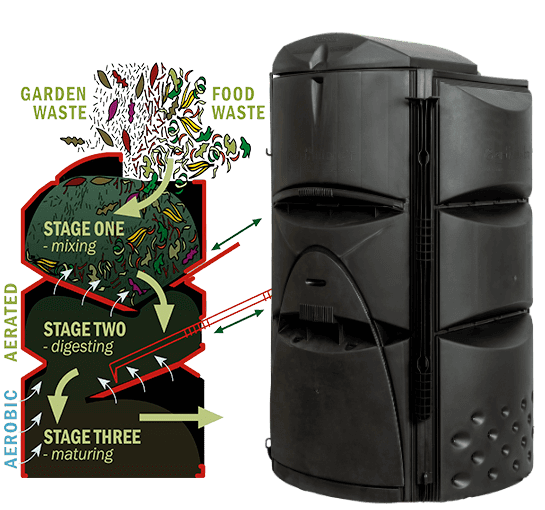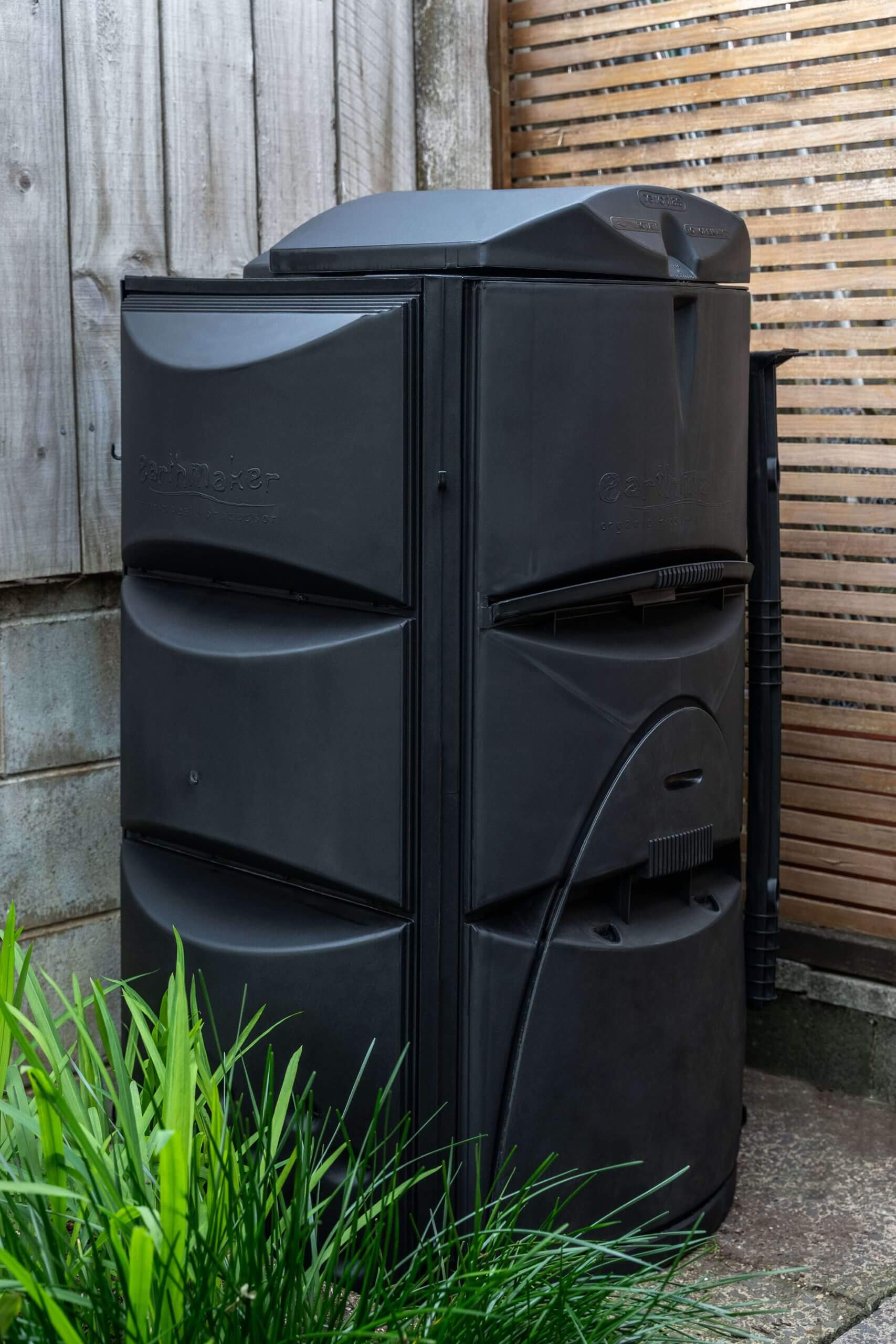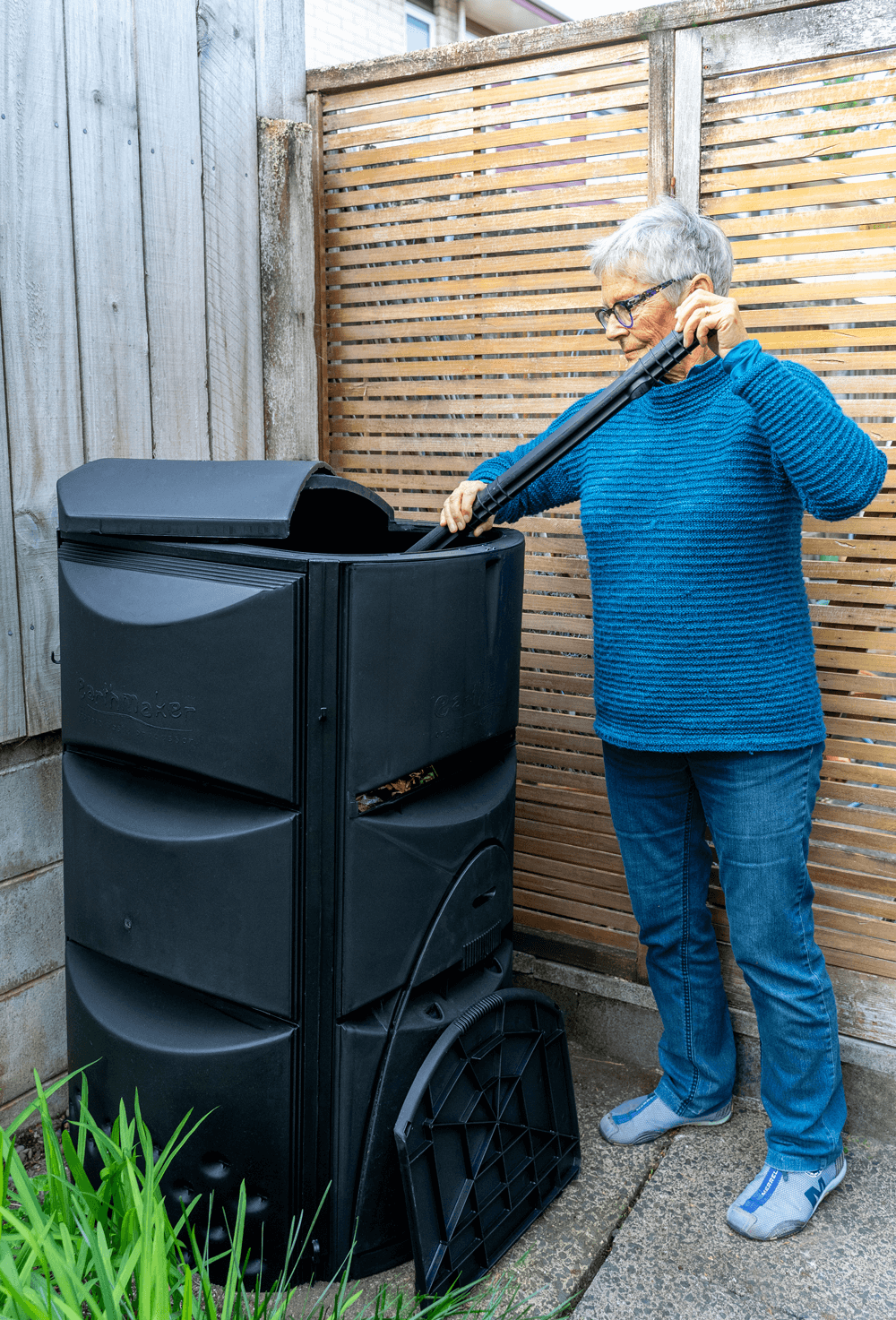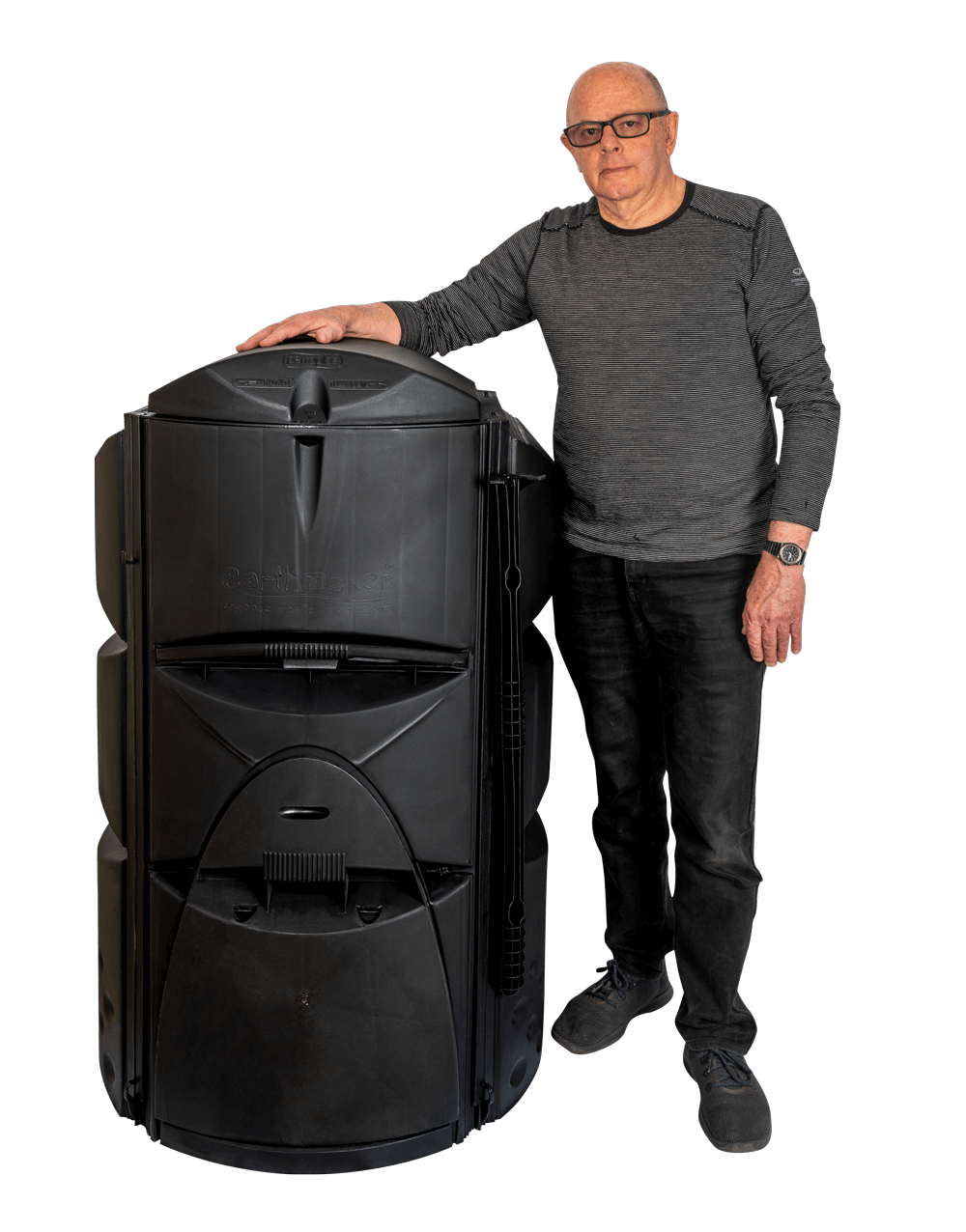
Are your food scraps piling up with nowhere useful to go? The landfill system consumes energy and releases harmful emissions, but what if you could turn that waste into something valuable for your soil? With the Earthmaker domestic compost bin’s aerobic system, it’s never been easier to make that change.
This innovative solution transforms everyday organic waste into nutrient-rich compost that your garden will love. No complicated processes, no mess—just a simple way to reduce waste, enrich your garden, and lower your carbon footprint.

Composting for Your Home
Composting at home isn’t just about reducing waste; it’s about creating a self-sufficient ecosystem where organic matter transforms into nutrient-rich compost. With Earthmaker’s domestic compost bin, you can effortlessly turn kitchen scraps and garden clippings into a powerful soil enhancer.
Designed with eco-conscious families in mind, our composting solution makes waste disposal simple, efficient, and rewarding. Say goodbye to space-consuming unsightly piles and hello to a sleek, functional system that works with gravity to do the heavy lifting for you.
Turn Waste Into Value with Our Compost Bin
Designed to fit seamlessly into your lifestyle, our compost bin combines innovation with practicality to deliver exceptional results. Here’s why Earthmaker is the ultimate choice for modern composting:
Innovative Continuous Cycle Design
Earthmaker’s compost bins are built on Ray Cooper’s visionary design, allowing organic material to cascade vertically through a three-bin compost system. This gravity-driven system simplifies composting, requiring minimal effort while maximising results.

Eco-Friendly and Sustainable
Our compost bins are made from a high-quality, recyclable, durable material chosen for longevity, and minimising environmental impact. By composting at home, you reduce landfill expansion and help combat climate change.
Perfect for Kiwi Gardens
Whether you’re an avid gardener or a beginner, Earthmaker’s domestic compost bin provides an easy and rewarding way to produce organic compost. From flourishing flowerbeds to bountiful vegetable patches, your garden will thank you.

How Our Domestic Compost Bin Works: 3-Step Process
- Load Your Organic Waste
Add your kitchen scraps and garden waste to the top chamber. - Let Gravity Take Over
The unique design ensures the material moves seamlessly through the decomposition stages. - Harvest Nutrient-Rich Compost
Collect decomposed compost from the bottom chamber, ready to nourish your garden.
Benefits Beyond Waste Reduction
- Save Money on Fertilisers
Homemade compost is a cost-effective alternative to store-bought fertilisers. - Improve Soil Health
Compost enriches soil with essential nutrients, enhancing plant growth and resilience. - Minimise Household Waste
Reduce your carbon footprint by repurposing organic waste instead of sending it to the landfill.

The Importance of Domestic Compost Bins in New Zealand
Kerbside collection of domestic organic waste, then transporting and processing at a central site, consumes a lot of energy. Imagine being part of a movement that not only reduces waste but actively fights climate change from your own backyard. Domestic compost bins are your chance to make a tangible difference by learning how to make compost at home. Food and garden waste diverted from landfill cuts harmful methane emissions while creating nutrient-rich compost to fuel your garden’s growth.
By choosing to compost, you’re embracing the New Zealand and global vision for a sustainable, circular economy—where waste isn’t wasted but transformed into something valuable. It’s a simple, impactful action that empowers you to take control of your environmental footprint while helping preserve the natural beauty of Aotearoa for generations to come.
Join the Composting Revolution Today and turn everyday waste into a greener future!
Why Waste? Why Wait? Let’s Compost!
With Earthmaker’s domestic compost bin, sustainability is within reach for every Kiwi household. Take control of your waste management, enrich your garden, and make a meaningful impact on the environment—one compost bin at a time.
Order Your Domestic Compost Bin Today and join New Zealand’s composting revolution!
FAQs
We recommend avoiding certain items like meat, dairy, and oily foods, as they can attract pests and slow down the composting process. Stick to fruit and vegetable scraps, coffee grounds, eggshells, shredded paper, dry leaves, and garden waste for the best results.
Our aerobic compost bin is designed to minimise odours. Because material is held on shelves at the first two stages, air is drawn up through it. Bad smells come from methane produced by the anaerobic decomposition common to single bin systems that have not been physically aerated.
With Earthmaker’s unique gravity-driven design, manual turning or mixing is largely unnecessary. The three-stage system allows aerobic composting to occur naturally as material is moved downward. Simply load from the top, occasionally use the Push-Pull-Tool to shift material through the stages, and harvest from the bottom!
This can happen if the balance of materials in the compost bin is off. Composting requires the right mix of greens (high in nitrogen) and browns (high in carbon). If decomposition slows, try adding more dry materials like shredded paper or leaves, and ensure the compost bin is moist but not soggy.
Under optimal conditions, you can expect mulch or compost in as little as 8-12 weeks. Factors like temperature, balance of greens and browns, and volume of material can influence this timeline. The process will speed up as microbes and bacteria become established. Earthmaker’s unique continuous cycle system is not a batch-by-batch process—add waste anytime, remove compost when needed.
Yes. While decomposition slows in colder temperatures, it doesn’t stop. Keep adding material—even if it freezes it will eventually thaw and decompose.
The amount of compost created depends on frequency and volume of material fed to your Earthmaker. On average, our domestic compost bins can process several kilograms of organic maIPPIItter per month, providing a steady supply of compost for your garden.
Yes, in almost all cases the compost produced in a compost bin is rich in nutrients and safe for most types of plants. For sensitive plants, you may wish to let the compost mature slightly longer to ensure it’s fully decomposed. If you have specific concerns, search the internet for advice but make sure it’s reliable—for example, stories about citrus being bad for compost are incorrect.
Do not clean the inside of your Earthmaker—the ‘dirtier’ it is the better it works because of the accumulation of microbes and bacteria. The outside can be washed with water and a little detergent if required.
While the design of our compost bin minimises pest issues, improper use (like adding meat or leaving the lid open) can attract them. If pests appear, consider sprinkling garden lime to deter them and/or set traps and lay bait to dispose of them before they investigate your home.
